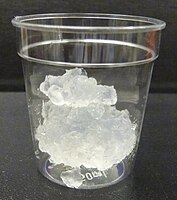
Mechanical properties of bio-mimetic energy-absorbing materials under impact loading
Sign Up to like & getrecommendations! Published in 2017 at "Journal of Materials Science"
DOI: 10.1007/s10853-017-1798-7
Abstract: The elytra can protect the body and hind wings of the beetle by absorbing the impact energy and resisting damage from outside loading. In this paper, we firstly observed the microstructures of hollow column and… read more here.
Keywords: energy absorbing; properties bio; energy; impact loading ... See more keywords

Microstructure, mechanical properties and bio-corrosion properties of Mg-HA bionanocomposites fabricated by a novel severe plastic deformation process
Sign Up to like & getrecommendations! Published in 2020 at "Ceramics International"
DOI: 10.1016/j.ceramint.2019.09.276
Abstract: Abstract This research investigates the alterations in microstructure, mechanical properties, and corrosion behavior of binary magnesium-hydroxyapatite bionanocomposites with 2, 5, and 10 wt%HA. By mixing Mg and HA powders with different percentages of HA contents, a… read more here.
Keywords: properties bio; bio corrosion; microstructure mechanical; corrosion ... See more keywords

Dielectric Properties of Bio-Based Diphenolate Ester Epoxies.
Sign Up to like & getrecommendations! Published in 2018 at "ACS applied materials & interfaces"
DOI: 10.1021/acsami.7b19085
Abstract: Thermoset bio-based diglycidyl ether of diphenolate esters (DGEDP) exhibit comparable mechanical properties as petroleum-derived diglycidyl ether of bisphenol A (DGEBA), whereas DGEDP is derived from levulinic acid, a safe and readily renewable feedstock. To determine… read more here.
Keywords: diphenolate ester; properties bio; dielectric properties; bio based ... See more keywords

Synthesis and Thermal Properties of Bio-Based Copolyesters from the Mixtures of 2,5- and 2,4-Furandicarboxylic Acid with Different Diols
Sign Up to like & getrecommendations! Published in 2019 at "ACS Sustainable Chemistry & Engineering"
DOI: 10.1021/acssuschemeng.9b04463
Abstract: Recent works highlighted how interesting are the properties of furan-based polyesters. Most of the attention has been focused on the homopolyester obtained with 2,5-furandicarboxylic acid and ethyl... read more here.
Keywords: synthesis thermal; properties bio; furandicarboxylic acid; thermal properties ... See more keywords

Thermal Annealing Effects on the Mechanical Properties of Bio-based 3D Printed Thermosets
Sign Up to like & getrecommendations! Published in 2023 at "Polymer Chemistry"
DOI: 10.1039/d3py00200d
Abstract: 3D printing technologies can address many sustainability aspects of creating new materials, such as reduced waste and on demand production, which reduces the carbon footprint of transport and storage. Additionally,... read more here.
Keywords: thermal annealing; properties bio; bio based; mechanical properties ... See more keywords

Effect of particles morphology on the effective elastic properties of bio–composites reinforced by seashells: Numerical investigations
Sign Up to like & getrecommendations! Published in 2022 at "Journal of Composite Materials"
DOI: 10.1177/00219983221138951
Abstract: Seashell waste, mainly composed of calcium carbonate and made of a complex microstructure, has been increasingly used as a bio–filler for composite materials, in a crushed or powdered state. Seashell particles present various sizes and… read more here.
Keywords: seashell particles; effect; seashell; properties bio ... See more keywords

Influence of fungal decay on mechanical properties of bio-based sheet molding compounds (SMC)
Sign Up to like & getrecommendations! Published in 2022 at "Polymers and Polymer Composites"
DOI: 10.1177/09673911221145050
Abstract: Sheet Molding Compound (SMC) was initially developed in the 1960s and enabled for the first time the production of glass fiber reinforced polymer composite in mass scale production and at an advantageous price. Today, material… read more here.
Keywords: sheet molding; properties bio; fungal decay; bio based ... See more keywords

A Mini-Review on Reflectins, from Biochemical Properties to Bio-Inspired Applications
Sign Up to like & getrecommendations! Published in 2022 at "International Journal of Molecular Sciences"
DOI: 10.3390/ijms232415679
Abstract: Some cephalopods (squids, octopuses, and cuttlefishes) produce dynamic structural colors, for camouflage or communication. The key to this remarkable capability is one group of specialized cells called iridocytes, which contain aligned membrane-enclosed platelets of high-reflective… read more here.
Keywords: bio inspired; reflectins biochemical; biochemical properties; mini review ... See more keywords

Selected Properties of Bio-Based Layered Hybrid Composites with Biopolymer Blends for Structural Applications
Sign Up to like & getrecommendations! Published in 2022 at "Polymers"
DOI: 10.3390/polym14204393
Abstract: In this study, layered composites were produced with different biopolymer adhesive layers, including biopolymer polylactic acid (PLA), polycaprolactone (PCL), and biopolymer blends of PLA + polyhydroxybutyrate (PHB) (75:25 w/w ratio) with the addition of 25,… read more here.
Keywords: pla phb; selected properties; biopolymer blends; properties bio ... See more keywords